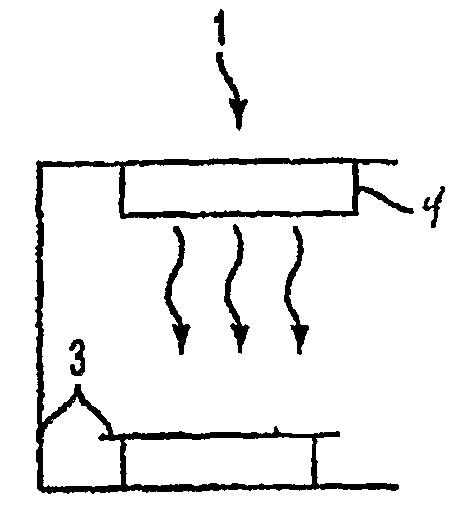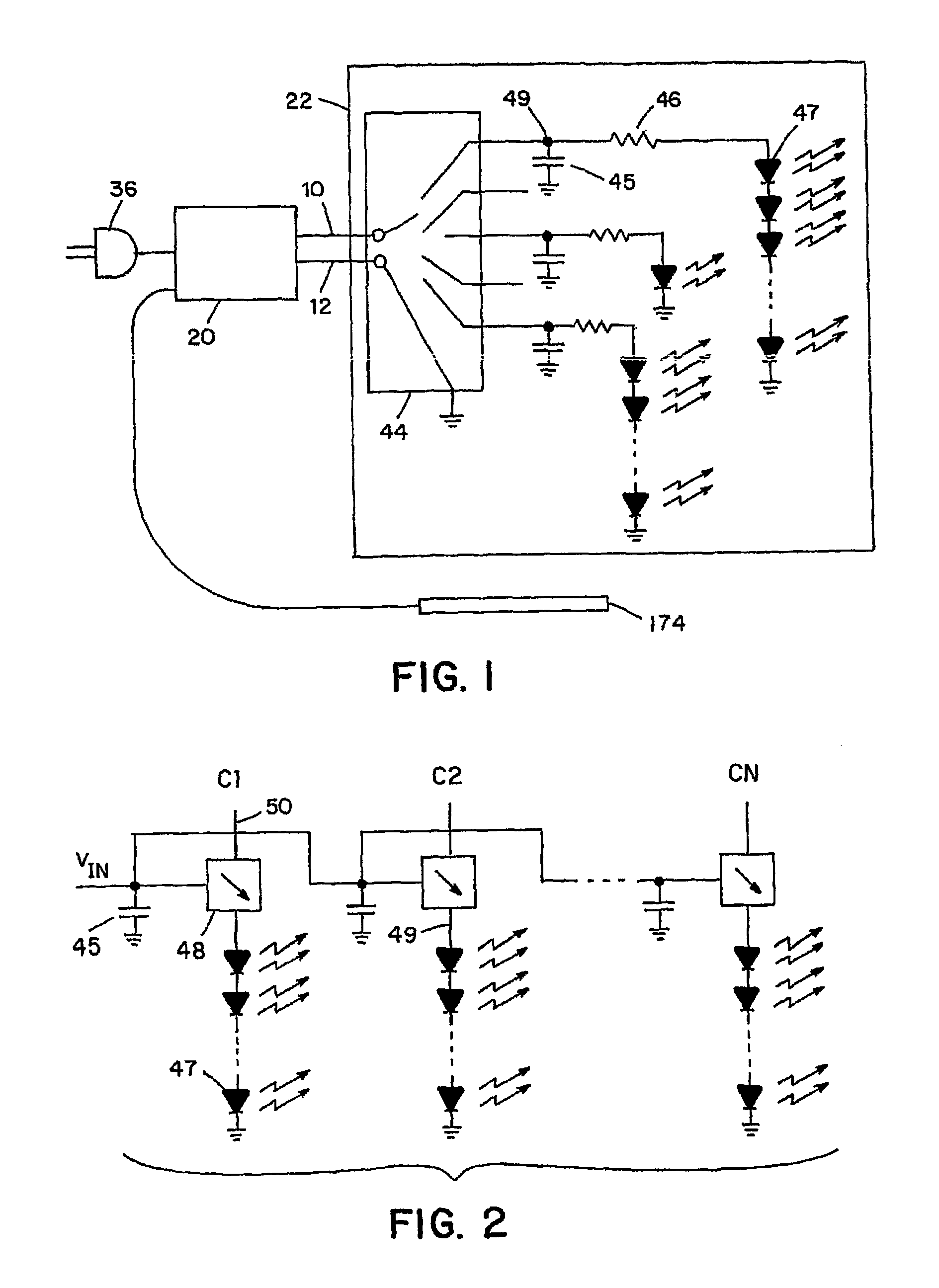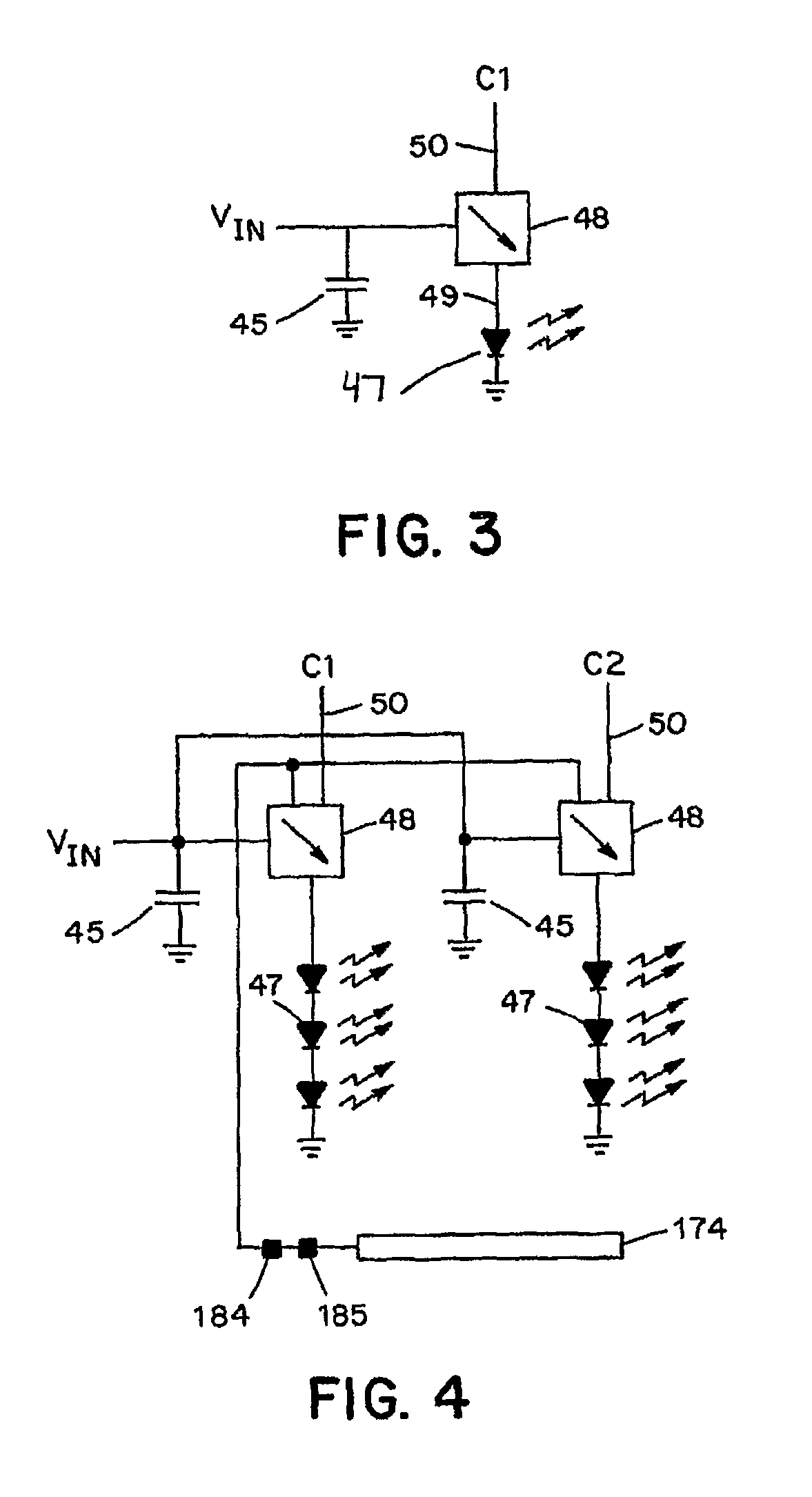Phototherapy method for treating psoriasis
a technology of psoriasis and phototherapy, applied in the field of phototherapy systems, can solve the problems of increasing the visibility of skin lines and wrinkles, indoor tanning does not implement a system, and the quality of ultra-violet light exposure by the sun is not easy to control
- Summary
- Abstract
- Description
- Claims
- Application Information
AI Technical Summary
Problems solved by technology
Method used
Image
Examples
third embodiment
[0071]In a third embodiment shown in FIG. 8A, the UV light emitting device (4) comprises a plurality of layers of nanoparticles or nanowires arranged in a direction extending from the UV excitation radiation source (7) to the portion of the chamber (3) which houses the person undergoing phototherapy. The nanoparticles or nanowires in each layer emit radiation having a different peak wavelength from the nanoparticles or nanowires in other layers. Preferably, the peak wavelength of the UV radiation emitted by the nanoparticles or nanowires increases in each subsequent layer in the direction from the UV excitation source (7) to the portion of the chamber (3) which houses the person undergoing phototherapy. In other words, the nanoparticles or nanowires in each layer located closer to the person's skin (i.e., farther from the UV excitation source (7)) emit radiation of a longer wavelength that those in another layer located farther from the person's skin (i.e., closer to the UV excitati...
fourth embodiment
[0075]In the present invention shown in FIG. 9, an optical filter (150) is located between the UV excitation source (7) and the UV light emitting device (4). The filter (150) is transparent to the shorter wavelength UV excitation radiation from source (7). However, the filter (150) reflects UV light of a longer peak wavelength emitted by the UV light emitting device (4). The filter (150) may be a holographic filter or any other suitable filter having the above described property. This configuration is advantageous when nanoparticles are used as the light emitting device (4). The nanoparticles emit UV light in all directions. However, the filter (150) reflects UV light emitted toward the source (7) back in the direction of the portion of the chamber (3) in which the person is to be located.
[0076]The fifth embodiment is a combination of the third and fourth embodiments. As shown in FIG. 10, the UV light emitting device (4) comprises a plurality of layers (110), (130) of nanoparticles ...
seventh embodiment
[0079]In a seventh embodiment, the system (1) contains the UV light emitting device (4) with exchangeable nanoparticles or nanowires to vary the peak emission wavelength of the device (4). For example, if the nanoparticles are located in a suspension in a sealed vessel, then the vessel may be opened and the suspension replaced by another suspension having nanoparticles which emit light of a different wavelength from the nanoparticles in the original suspension. Preferably, the vessel comprises non-stick surfaces to prevent nanoparticle adhesion. Alternatively, the entire vessel housing the suspension may be removed from the system and replaced with another vessel containing a different suspension of different nanoparticles which emit light of a different peak wavelength than the nanoparticles of the original suspension. If the nanoparticles or nanowires are coated as a solid layer on a substrate or substrates, then the substrate or substrate may be easily removable from the system t...
PUM
 Login to View More
Login to View More Abstract
Description
Claims
Application Information
 Login to View More
Login to View More - R&D
- Intellectual Property
- Life Sciences
- Materials
- Tech Scout
- Unparalleled Data Quality
- Higher Quality Content
- 60% Fewer Hallucinations
Browse by: Latest US Patents, China's latest patents, Technical Efficacy Thesaurus, Application Domain, Technology Topic, Popular Technical Reports.
© 2025 PatSnap. All rights reserved.Legal|Privacy policy|Modern Slavery Act Transparency Statement|Sitemap|About US| Contact US: help@patsnap.com



